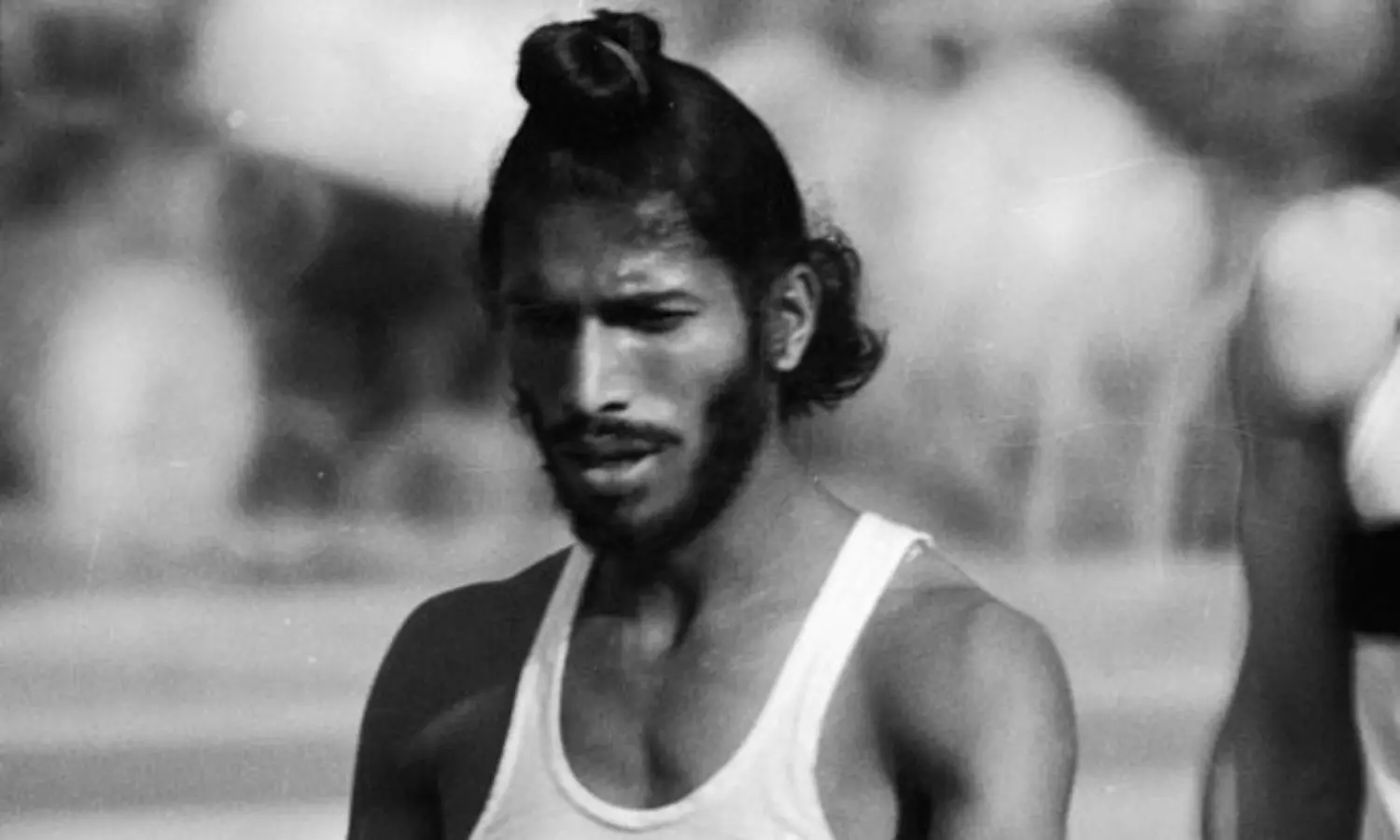Asian Games
El Magnifico: Revisiting Flying Sikh's stunning 1958 Asian Games gold medal spree
In the 1958 Asian Games, Milkha, the Flying Sikh, ran the race of his life. He won the 200m gold, edging Abdul Khaliq, the then-fastest man in Asia, with a margin of 0.1 seconds.

Milkha Singh wins two gold medals at the 1958 Asian Games.
Milkha Singh, Flying Singh, was the independent India’s first sporting lionheart and to date finest and unarguably the greatest track & field athlete in Indian history. The fact that his national record stood for over four decades spoke volumes about his sheer achievement.
No other Indian athlete could dominate the track like him in the 20th century. India, for a long, had to yearn for his successor before Neeraj Chopra appeared and took the world by storm.
With the commencement of the long-awaited Asian games, there are unstoppable expectations from Neeraj, perhaps the best Indian track and field athlete in the 21st century. Singh was incredibly proud of him. All the fanfare around Neeraj now reminds us about Indian athletics' first golden boy Milkha Singh, a star that the newly independent country looked up to for solace from the struggles and starvation of daily life.
The year 1958 was significant in Indian athletics history, with Milkha winning two gold medals at the Asian Games in 200 metres and 400m in Tokyo, and a whopping first medal at the Commonwealth Games in the 400m race held in Cardiff, Wales.
While winning these races, Singh also defeated his fiercest rival Pakistan’s legendary Abdul Khaliq, the fastest man in Asia at the time. Khaliq won the 100m gold medals in the 1954 as well as 1958 Asian Games.
Naming the Flying Sikh
As the rivalry grew and became a celebrated one, there was a huge demand for a race between Milkha and Khaliq across the borders. Thus, Pakistan President Ayub Khan sent a special invitation to the Indian government to organize a race between the two subcontinent heroes in 1960 in Lahore.
Milkha, who was born in Pakistan's Punjab province and had to leave the country during the partition, was visiting Pakistan for the first time since running away to India to save his life from the miscreants.
He initially declined to go to Pakistan. But on being insisted by Prime Minister Jawaharlal Nehru, he agreed to visit the country. Singh, who ran the race of his life, had beaten dangerous sprinter Khaliq. Closely watching from the stands, Ayub Khan, overwhelmed with Milkha's victory, came up with the moniker of Flying Sikh. It was then that Milkha came to be known as the Flying Sikh.
General Ayub said, 'Milkha ji, you didn’t run in Pakistan, you flew. We would like to give you the title of Flying Sikh.'
Later, Milkha Singh said, "So if people know me by that moniker, it’s all because of Pakistan’s generosity.”
Another quirky story that goes is that Milkha approached the 400m and 4x400m relay gold-medallist USA’s Charles Jenkins at Melbourne 1956 after his events got over and asked for his guidance about the training routine. Jenkins was generous enough to guide him. The then 27-year-old Singh religiously followed that routine for the next two years and it rewarded him well. Milkha set national records ahead of the 1958 Asian Games. He was in fine form in the 400m event, where he won the gold medal in 47 seconds, two seconds faster than silver medallist Pablo Somblingo.
The second gold was even more special for him though. In 200m, Milkha defeated Abdul Khaliq, who had won the 100m gold medal with a new Asian Games record. He ran the final in 21.6 seconds making a new Asian Games record in the process and fell at the finish line after pulling a muscle in his leg. Milkha won the tight race with a margin of 0.1 seconds.
Back home, Singh clinched double Nationals gold medals in his pet events - 200m and 400m - in Cuttack.
What followed next was an incredible performance in the Jakarta Asian Games in 1962 in front of a hostile crowd. Yet, Milkha completed a double of 400m and 4x400m relay gold. He inspired millions with his shining performances. He had famously finished fourth at the 1960 Rome Olympics, falling 0.13 seconds behind the bronze medallist Malcolm Spence of South Africa. His timing of 45.73 in Rome had stood as a national record for four decades.
Milkha Singh was the pioneer of sporting will and a trailblazer of Indian athletics. It was because of him that athletics developed immensely, and India's love for it has risen magnificently. Now, Neeraj Chopra is determined to take that baton forward in the Hangzhou Asian Games.
